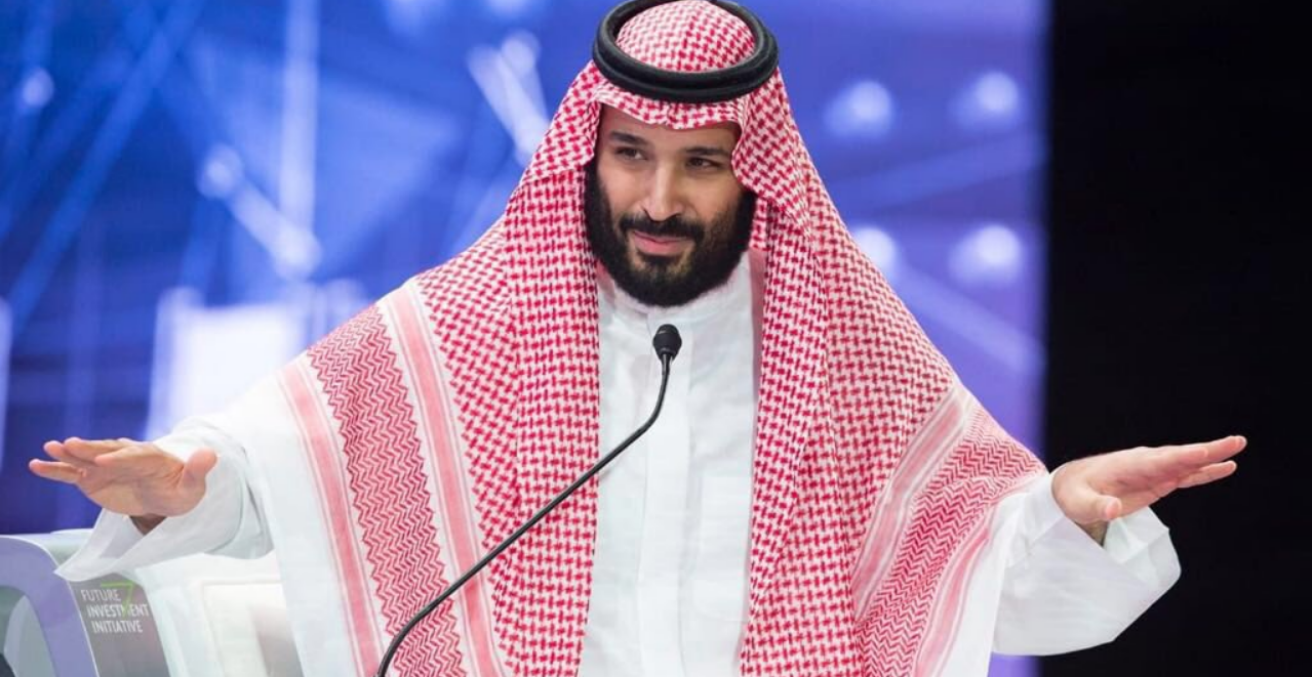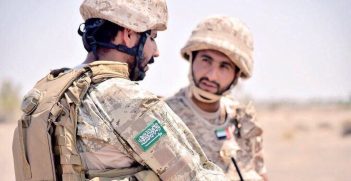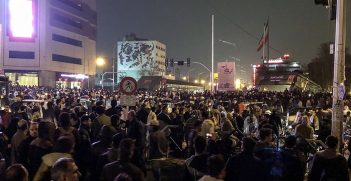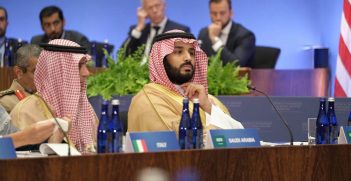Full Steam Ahead with ‘Davos in the Desert’

While Jamal Khashoggi’s death has tarnished the Crown Prince’s reputation, Saudi Arabia’s Future Investment Initiative went ahead.
Since his disappearance on 2 October in the Saudi Consulate in Istanbul, Jamal Khashoggi’s alleged murder at the hands of Saudi agents has dominated the media and international diplomacy. While investigations into Khashoggi’s death continue, many believe the orders to assassinate the Washington Post journalist came from Crown Prince Mohammad bin Salman, the de facto ruler of Saudi Arabia.
While this international row may have tarnished bin Salman’s reputation as a more open leader seeking moderate change in Saudi Arabia, did it have a real impact on deterring investment at this week’s investment conference in Riyadh promoting Vision 2030, the Crown Prince’s plan to diversify the country’s economy away from its current oil-dependency?
‘Davos in the Desert’
The Future Investment Initiative Conference, a three-day event that began on 23 October in Riyadh, aims to promote Saudi incentives for international investment. Held at the Ritz Carlton, which famously imprisoned several key figures of the Saudi royal family in 2017, it was the Crown Prince’s opportunity to showcase Saudi Arabia as open for business and promote his Vision 2030.
Commonly known as ‘Davos in the Desert’, the event initially boasted an array of international businesses and world leaders. The original program included speakers and attendees such as International Monetary Fund Director Christine Lagarde and Head of the World Bank Jim Yong Kim. It caught the eye of other big international figures such as Richard Branson who is board with several tourism and travel projects in the Kingdom, including a potential USD 1 billion investment in his Virgin Hyperloop.
But days before the event, key attendees began to pull out as Saudi Arabia faced backlash for the death of Khashoggi. While it went ahead, some journalists described the mood at the start of the event as subdued.
Who pulled out?
Uber CEO Dara Khosrowshahi was one of many high-profile executives across a wide range of industries and sectors who pulled out of the event: “I’m very troubled by the reports to date about Jamal Khashoggi. We are following the situation closely, and unless a substantially different set of facts emerges, I won’t be attending the FII conference in Riyadh.”
In addition to the heads of the IMF and World Bank, other big names in banking and finance who did not attend included JP Morgan Chase CEO Jamie Dimon, BlackRock CEO Larry Fink, Blackstone CEO Stephen Schwarzman, Ford Chairman Bill Ford and MasterCard CEO Ajay Banga. Tech company executives, including Google Cloud CEO Diane Greene and AOL founder Steve Case, also withdrew from the conference. Richard Branson suspended his role in two key Saudi tourism projects while Ernest Moniz, a key adviser under Obama, ceased advising Saudi Arabia on a USD500 billion smart city project for Vision 2030.
Media entities such as CNN, CNBC, Bloomberg and the Financial Times pulled media sponsorship for the event, while The Economist editor-in-chief Zanny Minton Beddoes announced she would no longer attend. Foreign government officials including UK Trade Secretary Liam Fox and US Secretary of State Mike Pompeo announced they would not attend, however the latter did meet with the Crown Prince to discuss the murder.
The Australian government withdrew its delegation due to Khashoggi’s death, with Australian Foreign Minister Marise Payne and Trade Minister Simon Birmingham stating: “In light of this new information, we have determined that official Australian representation at the forthcoming Future Investment Initiative… event in Riyadh is no longer appropriate.”
So, who attended?
While businesses and individuals withdrew from the event, many still attended with billions of dollars in deals signed over the three-day event. According to the Washington Post, a US executive said it was a mere hiccup in the commercial relationship with Saudi Arabia as the relationship was far too valuable to let a single high-profile death come between Washington and Riyadh.
High-level executives such as Patrick Pouyanne, CEO of French oil company Total SA, still attended the event while consultancy firms such as McKinsey, PwC and Deloitte continued with their sponsorship of conference. Other companies whose high-profile executives withdrew still sent low-level representatives to fulfil their business interests and safeguard their corporate presence. US and European firms were concerned not to lose out to Russian or Chinese firms pushing ahead with Saudi investment regardless of the Khashoggi murder.
Several world leaders also attended the event including Pakistani Prime Minister Imran Khan, King Abdullah of Jordan and Lebanese Prime Minister Saad Hariri, illustrating ongoing regional support for the Saudi Crown Prince.
What does this mean for the Crown Prince?
Saudi Arabia is a cash cow for international business. The killing of Khashoggi will be a blip on the radar for bin Salman’s Vision 2030 in the same way that the brutal Saudi bombardment on Yemen has failed to halt international business in the Kingdom. The economic incentives in Riyadh are too great to be disregarded for one man’s murder.
Saudi Arabia maintains an appalling record when it comes to free press, political activism and human rights, yet this has never prevented global companies from eying off key investment opportunities in the Kingdom. It is only the magnitude of media attention surrounding Khashoggi’s death that has resulted in a minor public relations disaster for corporations seeking business deals with Riyadh. But as one senior executive for an international bank told CNN, “We can’t ignore Saudi Arabia.”
While the mood may have been sombre, the event will likely be viewed as a success for the Crown Prince. He may have lost face in the weeks following the death of Khashoggi, but he achieved many of the key investments he sought and will likely achieve further deals when the dust settles. The Australian Government has not ruled out continuing with its arms sales to the Kingdom, despite pulling out of the conference.
The Crown Prince, in seeing that it is possible to conduct human rights atrocities without consequences, may be emboldened to push ahead with his Vision 2030 in any manner he sees fit.
Will McEniry is a former intern with AIIA Victoria and AIIA National Office.
This article is published under a Creative Commons Licence and may be republished with attribution.





